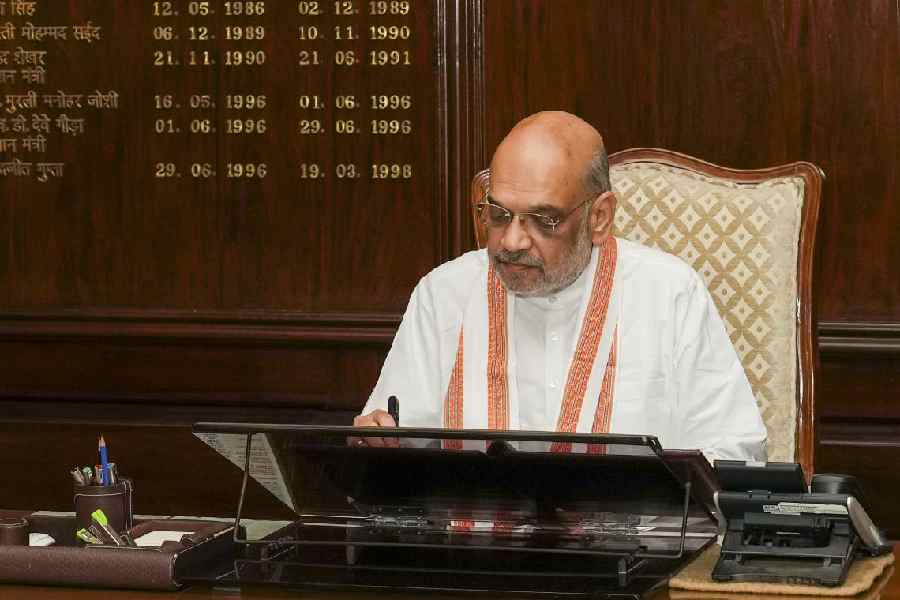Implementing the newly enacted criminal laws would be the immediate challenge for Amit Shah, who took charge as the Union home minister for the second consecutive term in the Narendra Modi cabinet on Tuesday.
The three newly enacted criminal laws would come into force from July 1. The Bharatiya Nyaya Sanhita, Bharatiya Nagarik Suraksha Sanhita and the Bharatiya Sakshya Adhiniyam are to replace the colonial-era Indian Penal Code, Code of Criminal Procedure and the Indian Evidence Act, respectively.
“Implementing the new criminal laws would be the first big challenge for Shah as he needs support from all the state governments, including those ruled by the Opposition. The onus is on him to ensure a smooth transition of these three laws and for this, the minister has to take everyone along,” a Union home ministry official told The Telegraph.
Parliament had passed the three laws on December 21 last year and President Droupadi Murmu gave her assent on December 25. In February this year, the Centre had put on hold a new and stringent provision for hit-and-run cases that had triggered massive protests by transporters’ associations nationwide.
“Shah needs help from state governments as police and judicial officers (of all ranks) need to be trained about the new laws for its effective implementation,” the ministry official said.
The home ministry had earlier written to all states/Union Territories seeking help to train and educate policemen about the new laws and make appropriate arrangements in the respective states for providing intensive training to all police and prison personnel without leaving anyone behind.
Sources said the home ministry has formed a team of 4,000 officials who will train police officers, investigators, and forensic experts to implement the new laws zone-wise across the country.
The new laws have brought terrorism, corruption and organised crime — so far the province of special legislation — under the ambit of ordinary criminal law, some of whose provisions have witnessed a consequent stringency. For instance, the maximum duration of police custody for ordinary crimes has been increased from 15 days to 90 days.
Legal experts have argued that while the three laws have been enacted with the stated objective of overhauling colonial-era criminal laws, only 20 to 25 per cent of the provisions reflect any actual change.
Most of the other provisions seek to strengthen the powers of the government and the police and reduce their accountability to turn India into a “police state”, they said.
The Centre claims the section on sedition has been repealed but rights activists and legal experts have argued that the law has only changed name and is now more draconian. While IPC Section 124A, which dealt with sedition, prescribed life imprisonment or three years in jail, Section 150 of the Bharatiya Nyaya Sanhita prescribes a life sentence or seven years.
Section 150 applies to anyone who “purposely or knowingly, by words, either spoken or written, or by signs, or by visible representation, or by electronic communication or by use of financial means, or otherwise, excites or attempts to excite secession or armed rebellion or subversive activities, or encourages feelings of separatist activities or endangers sovereignty or unity and integrity of India or indulges in or commits any such act”.
Before taking charge of the ministry, the 59-year-old Shah visited the National Police Memorial in Delhi.










